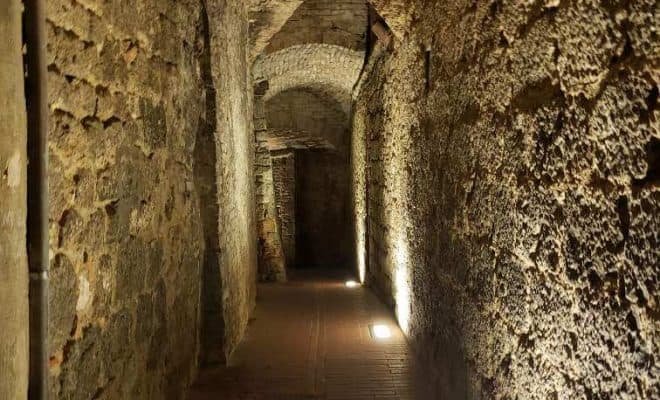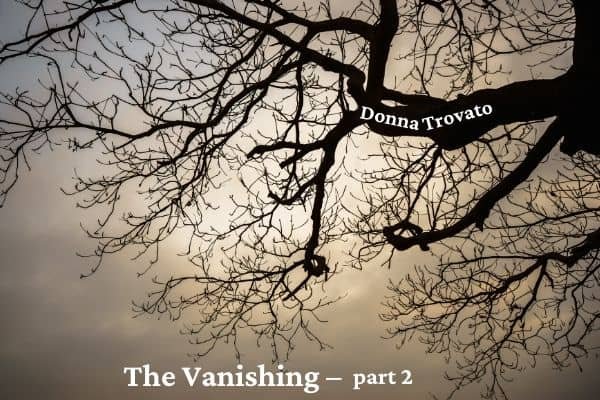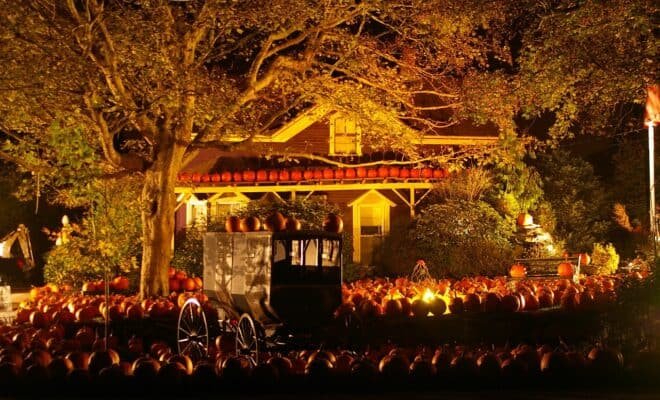The Inhabitants

The Old Woman ran her fingertips over the dead leaves, then clenched her hand into a fist, and clawed at the drooped plants. Water dripped out of the hose on the dry ground beside her. A strong breeze rustled from beyond the garden fence. They stood in the distance. Without her glasses, they were blurry figures lurking. She crouched from view and waited. When the tall grass rustled again, she arose and was alone.
She wiped her hands on her jeans, hugged herself in the setting sun, and ran into the old farmhouse. Its weathered sides showed years of decay. Someone had padlocked the main entrance. The Old Woman hurried in through the back. Inside, the power outage continued, and the rooms reflected sallow hues in the sunset. She walked through a maze of her past life and forced shut the windows. Unwanted toys, crates of books, and garbage bags of discarded clothing guided her. Most of the furniture was gone; crusty dishes sat abandoned in the sink. A bulb in the hallway flashed as if signaling her entry. The echo of familiar giggles passed through her, and a heavy weight pressed against her chest.
Days later, they were closer, roaming the periphery of the house. Parents with two boys and a girl with hair the shades of silk straw and honey. The youngest boy sat at the mother’s jutted hip sucking his thumb. They watched their steps. The woman craned her neck from the kitchen window. When the family turned the corner, they should have been passing by but they were gone.
The Old Woman and her husband had talked about leaving the farmhouse many times. They had never quite caught up with its needs. It would force them out. Every time there was rain, the roof added another spot that needed coverage. The little ones had joined her in setting out the buckets, waste baskets, and then pots from the kitchen to catch the drips.
In the winter, they nailed blankets to the windows to trap heat from the wood stove. They drank hot tea and walked around cloaked in blankets. In summer, they slept atop thin sheets listening to the chorus of frogs and crickets outside.
Faulty wiring, blinking bulbs, and frequent power outages had been the norm. She had made a game from what they lacked. Darkness meant playing board games or telling stories under a weak flashlight. The place had never blossomed into their dream house, but it had been their home.
Outside, a new generation of frogs and crickets sang to her. Coyotes yipped and cackled for their families. The woman slept in a corner of the upstairs attic. Her only defense was two wide candlesticks with spikes. The air was heavy with unseen eyes. She held her breath at the shadows, unaware that what was around her was a trick of the darkness or a sleeping mind.
“I had a bad dream,” she heard her young son’s voice whisper in her ear. The weight grew heavier, hot tears streamed when there was no one.
Days passed with no signs of life. There was only the distant sound of sporadic passing cars. The Old Woman spent hours in the attic rifling through boxes of inherited souvenirs, baby clothes, and disintegrating construction paper crafts. She sat by a panel with the outline of tiny hands, and “We love our family” scrawled on it.
The Old Woman studied a yellowed photo album when she heard the front door forced open. It had given way under someone’s weight. She put a hand over her heart. Someone had the key. They were below her.
A young child cried, and someone cooed to shush it. Young voices exclaimed at her things in the kitchen. Look at the frog planter! Look at the circle chair!
The Old Woman in the attic walked between creaking floorboards to the other side of the stairwell. A surge of tears brewed below the surface, and the pressure on her chest returned. She struggled for air and hiccupped. A female voice downstairs said, Did you hear that? Footsteps walked closer to the attic entrance. She did the same. When the Old Woman peered down, they stared at each other. The father had tired gray eyes with wrinkles from smiling, the mother held the baby, a hand on his head. The older boy and girl flanked her. The family looked through her before fading like a burned-out light bulb. Their energy crackled in the dim doorway below.
The Old Woman tried calling her husband, but he was no longer on her contact list. She dialed his number with shaking hands, but her fingers pressed the wrong ones.
They had arrived. Tires crunched on the gravel driveway; car doors closed. Again, a body forced the entryway open. Footsteps peppered the first floor. The knob at the bottom of the attic stairs rattled.
The Old Woman searched for what she could carry, like they had planned for emergencies, with only minutes to escape. She dropped the crate of albums out the back window and searched for what else she could take.
Footsteps on the attic stairs, they were coming for her. She struggled through the window, hung from its sill. They were consuming the place. The Old Woman held her breath, let go, and landed in a dead bush’s snarl of stiff, cracked branches that tore at her. The crate of albums lay splayed around her. Photos fluttered away. She grabbed the remnants of the scrapbook, clutched the falling pages to her chest, and limped toward the backfield. The tall grass scratched at her bleeding calves. She looked over her shoulder at what had been. She would go somewhere far and reconstruct it in her thoughts. She had to leave because they were home.









